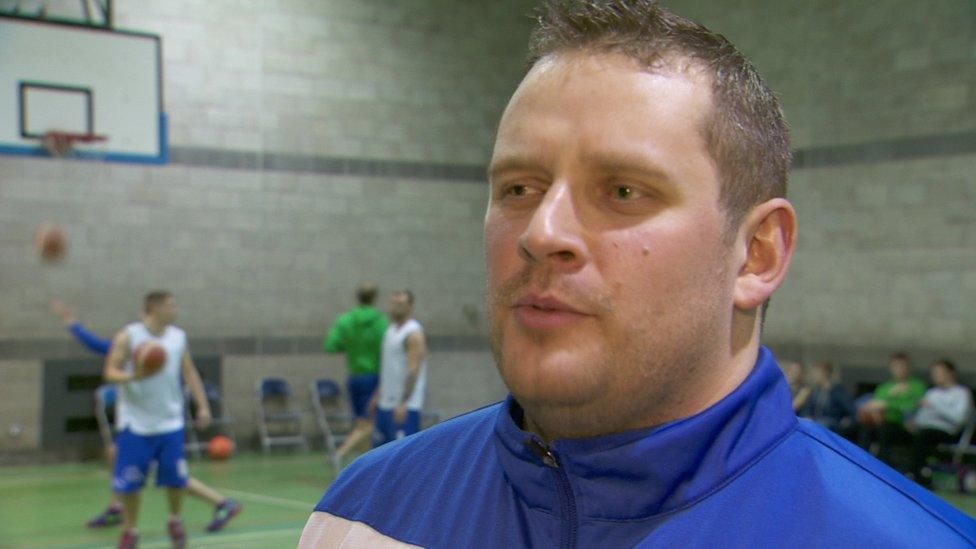Basketball games from Vilnius to Cookstown
- Published

BC Wolves team coach Rolandas Bartkus said Lithuanians love basketball
People from Ireland and Britain have taken their favourite sports around the world: rugby, GAA and cricket clubs can be found in many countries.
Now, Northern Ireland's growing international community is resulting in a sporting boom of another kind - basketball.
Walking into Cookstown Leisure Centre on a Saturday afternoon, the accents might not be what you'd expect.
"Lithuanians love basketball. It's the main game in our country so we started to gather-up everybody," said BC Wolves team coach Rolandas Bartkus.
Martynas Kubeckis has been involved in local basketball since he moved to Northern Ireland 15 years ago
The club is barely two years old and already has about 50 members. Their ages and playing styles may vary, but they all share the same nationality.
'In the blood'
Martynas Kubeckis plays for the team and has been involved in basketball since he moved to Northern Ireland 15 years ago.
"It's just a religion. If you go back home to Lithuania there are so many courts outside. Everybody plays basketball, it's just in the blood," he said.
The club is barely two years old and already has around 50 members
This week, BC Wolves welcome their first non-Lithuanian players; something they're keen to build on in their first and second teams, as well as the under-16s and under-12s.
The on-court standard is impressive, as is the vocal support from the sidelines.
Cultural movement
Dozens of the players' families cheer on in their native language and some of them take part in a half-time dance performance.
The club is as much a cultural movement as it is a sporting one.
But this isn't limited to Cookstown.
About 30% of male players in Northern Ireland's leagues are Lithuanians.
Sean Moyes said the influx of Lithuanian players has enhanced the sport
As a result, many clubs are befitting from a surge in membership from the country.
"People were migrating to work here, we knew there would be basketballers coming," said Sean Moyes, chairman of Basketball NI.
"We hoped they'd get themselves in the local game and thankfully they did."
So, what impact will the influx of Lithuanian basketballers have on the local game?
Senior members of BC Wolves believe many of their junior players will go on to represent Northern Ireland and Ireland internationally.
"We're surprised by how many," said Sean, "But we just hope they keep coming."